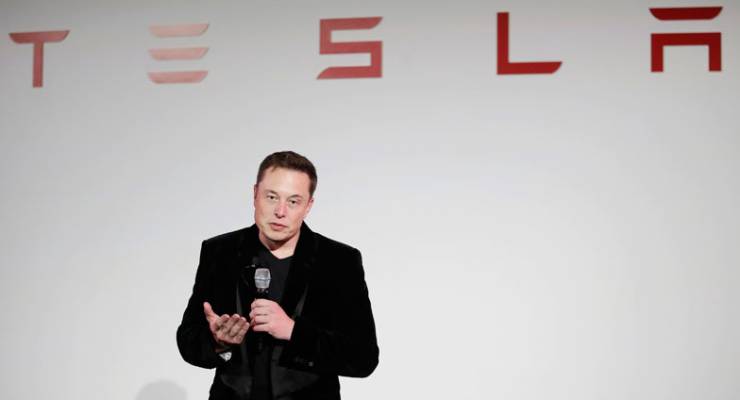
Elon Musk’s electric car company, Tesla, is heading for doom. All the telltale signs are present.
If ever a company were overstretched, it is this one. The CEO, who is the driving force behind the thing, spends a lot of his time chairing a solar power company and a substantial amount of effort launching rockets.
The rockets? They don’t always go so well, and the effect is metaphorically apt.
If this were a novel about corporate excess and arrogance, you’d accuse the author of excessive foreshadowing.
Tesla retains an amazing advantage in positive PR, but on a lot of other KPIs things are going rather less well:
- Tesla is buying the other company Musk chairs, SolarCity, for $2.5 billion (the CEO is Musk’s cousin). The combined company has been called a “walking insolvency”;
- Tesla missed sales targets in the first two quarters of the year;
- It is struggling to make cars and has faced a lawsuit over quality;
- Musk recently begged workers to cut costs in order to achieve a quarter of profitability (for PR reasons, so he can raise yet more capital.) “It would be awesome to throw a pie in the face of all naysayers on Wall Street who keep insisting that Tesla will always be a money loser!” he said;
- It is relying on a yet-to-be-built “gigafactory” in Nevada to bring down the cost of batteries; and
- It lost $900 million last year.
The stock price rose last week, soaring back over $200 as investors showed remarkable resilience in the face of some very large, very bright warning signs.
Investors can easily fall prey to cognitive biases. The relevant one in this case is the conjunction fallacy.
This fallacy occurs when we think a combined set of circumstances is more likely than an individual one. The most common example of the conjunction fallacy given is this:
Linda is 31 years old, single, outspoken and very bright. She majored in philosophy. As a student, she was deeply concerned with issues of discrimination and social justice, and also participated in anti- nuclear demonstrations.
Which is more probable?
- Linda is a bank teller.
- Linda is a bank teller and is active in the feminist movement.
The proven tendency is to choose the second one. People overwhelmingly like things that seem to fit together. (This is linked to another kind of cognitive bias, the “representativeness heuristic”.)
The problem for Tesla investors is they perceive the chance that “self-driving cars will be common on our roads with 10 years, and it’s all thanks to Elon Musk!” to be as likely — or more likely — than “self-driving cars will be common on our roads within 10 years”.
It’s natural to make this mistake.
When people think about science, they want a hero, a mad inventor who solves problems for humanity. They want Iron Man, really, but in lieu, South African-born Musk will do. It could not be clearer. If this were fiction, this man would be the hero of the piece.
So it has become very difficult to separate the idea of self-driving cars from the idea of Tesla. Yes, Google and Volvo and Mercedes are out there doing things, but none of them have quite the PR machine Tesla does.
The only thing that will force that mental separation in the minds of investors is the spectacular financial failure.
That could come sooner than we think. But that would be bad news.
For now, these over-excited investors are doing a lot of good. The more they prop up Tesla, the more R&D it does. This is a kind of privately funded research of a kind that is all too rare. And it will yield tremendous value even as Tesla comes to a crashing halt, because the liquidators will swiftly move the IP on to a range of other companies at a great discount. Among those assets is likely to be the brand — so even if Tesla fails, consumers might not notice.
(Tesla promised not to litigate anyone who infringed its patents back in 2014, but patents are far from being the only kind of IP. It would in theory be a downside if those patents went back to being fully defendable in law, but there is no plausible evidence anyone is actually using them.)
When great assets are built, the companies behind them go broke, and the assets are moved on cheaply, the private harm is concentrated and the benefit flows out widely. Even if Tesla comes apart at the seams, and it seems very likely to do so, its legacy in taking the cause of transportation forward will be assured.








Crikey is committed to hosting lively discussions. Help us keep the conversation useful, interesting and welcoming. We aim to publish comments quickly in the interest of promoting robust conversation, but we’re a small team and we deploy filters to protect against legal risk. Occasionally your comment may be held up while we review, but we’re working as fast as we can to keep the conversation rolling.
The Crikey comment section is members-only content. Please subscribe to leave a comment.
The Crikey comment section is members-only content. Please login to leave a comment.